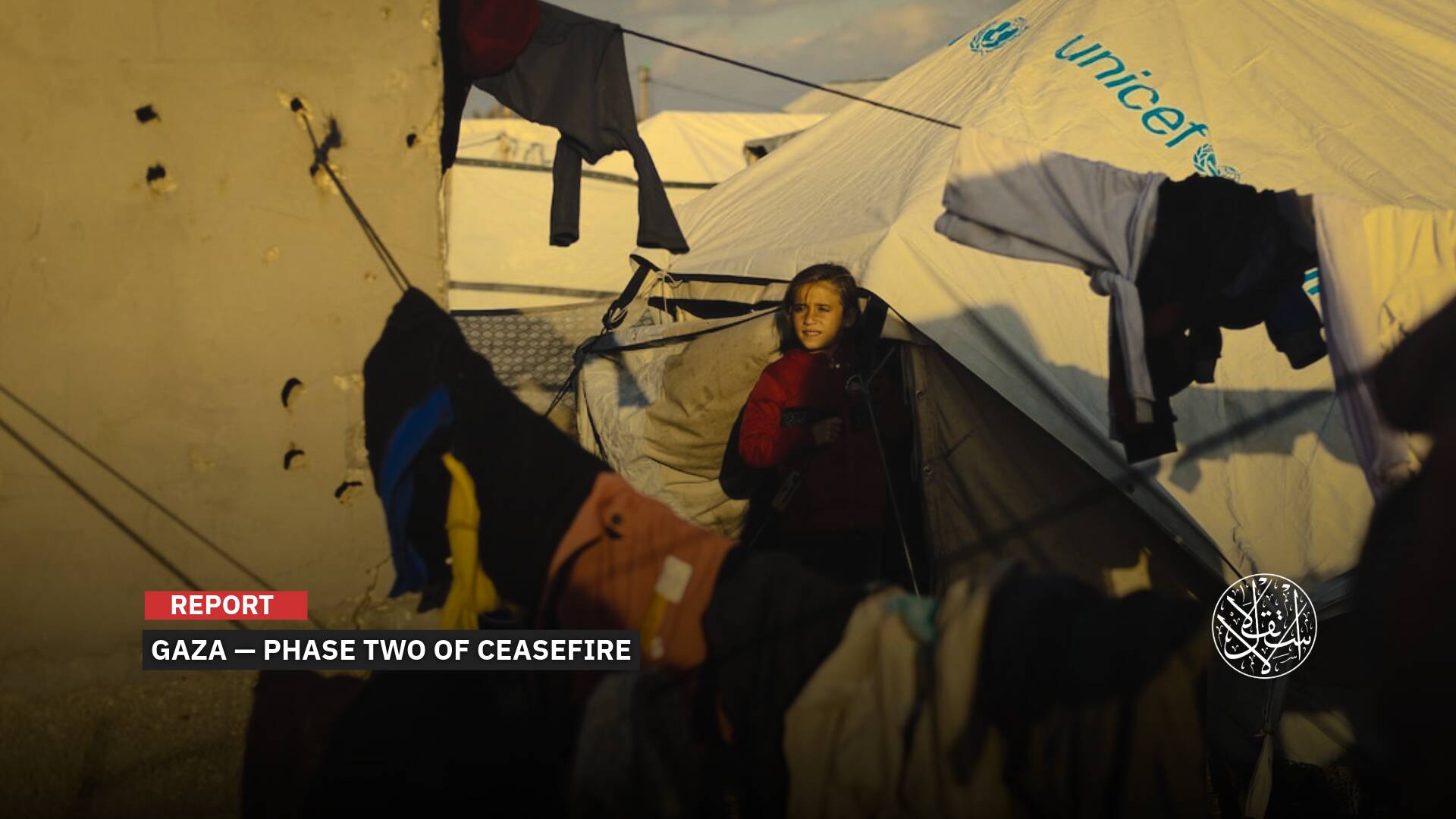The Worst Is Yet to Come: Climate Crisis Hit Europe and May Paralyze Its Trade

Europe is currently experiencing the most severe drought it has witnessed in centuries, in light of the state of low water levels in several rivers and lakes, due to heatwaves and lack of rain, which threatens the European economy with a loss of about $80 billion.
The European continent is witnessing an unprecedented drought, the worst in 500 years, according to what was announced by the Joint Research Center of the European Commission in its report issued last July.
The report revealed that severe drought affected 46% of the European continent and that two-thirds of the continent's area is threatened by drought, knowing that until mid-July, only 15% of the area of Europe was classified as severe drought.
European Union researchers warned that water shortages and extreme heatwaves threaten to spark wildfires, dry up rivers, cause fish death, and threaten the agricultural harvest in the old continent.
Climate change that is hitting Europe threatens energy supplies, agriculture, drinking water, shipping, and tourism, which may lead to disturbances in waterways during the coming period, which is a major challenge for Europe, which is already on the brink of recession; as the Russian attack on Ukraine is fueling its inflation by putting pressure on food and energy supplies.
Climate Change
Europe is witnessing a wave of climate change that it has not witnessed throughout history, as drought hit its center, causing major rivers such as the famous Rhine River to drop to record levels and the flow of the Loire River that passes through French territory to be completely stopped as if warning the old continent of the severity of the crisis in the future.
Several European countries, including Spain, Germany, Portugal, France, the Netherlands, and Britain, are suffering this summer from a drought that has hit farmers and shipping companies and prompted authorities to restrict water use.
"Worse than the Corona pandemic," this is how specialists described the intense heat wave in Europe this summer, which led to the burning of more than 600,000 hectares of forests across Europe and the death of thousands amid warnings of a permanent change in the continent's climate and the transformation of part of its lands into arid areas.
According to a report by the Intergovernmental Panel on Climate Change, European temperatures will rise faster than any other region.
Meanwhile, scientists at the World Meteorological Organization confirm that this type of heatwaves, such as what Europe is witnessing at the present time, will be a natural thing in the future as a result of climate change.
The proliferation of these phenomena is due to the direct repercussions of climate warming, according to scientists, as greenhouse gas emissions increase their strength, duration, and frequency as well.

In turn, Mr. Zaher Hashem, a journalist specializing in environmental issues, explained in a statement to Al-Estiklal that: “The droughts experienced by several countries in Europe are exceptional, and their frequency may increase as a result of climate change.”
He pointed out that “the drought that is currently hitting Europe will lead to an increase in the frequency of wildfires, disruption of agricultural production and a rise in food prices, as well as the lack of feed that threatens livestock and their production.”
“Human activities are the main cause of climate change, as transportation and industry emit gasses called greenhouse gasses, which settle in the Earth’s atmosphere and prevent a large part of the sun’s rays from being reflected and leaving the Earth’s atmosphere, which causes global warming and climate change,” Mr. Hashem added.
“Commitment to the decisions of global climate conferences is still dependent on countries’ policies and economic plans, as economic and political interests often conflict with plans to reduce emissions,” he indicated.
“There are fears that the Russian war on Ukraine will cause a shortage of natural gas resources, which may force Europe to return to the old methods (coal and fossil fuels) of energy production,” Mr. Hashem said.

Severe Drought
In the midst of a record-breaking drought summer across Europe, the continent's rivers are evaporating. The Rhine, a pillar of the German, Dutch, and Swiss economies for centuries, may be nearly out of business at a major road point later this week, which would hinder the massive flows of diesel and coal.
The Danube, which makes its way 1,800 miles through central Europe to the Black Sea, is also turbulent, hindering trade in grain and other things, Bloomberg reported on August 10, 2022.
In addition, the high temperatures in the rivers made the waters of the Rhone and Garonne rivers in France too warm to allow the effective cooling of France's nuclear reactors.
As for the Po River, Italy's longest river, its water level fell the worst in 70 years, to the point that it was no longer enough to irrigate rice fields, causing billions of euros in losses to farmers who depend on it.

The decline in the level of the Rhine to a new low level due to the ongoing drought in Germany and elsewhere in Europe imposes more economic burdens on many boats to cross the river and further restricts the distribution of coal, gasoline, wheat, and other commodities, amid a looming energy crisis.
The Guardian reported on August 12, according to a daily bulletin issued by the German Federal Waterways and Shipping Administration, that water levels in the main waterway will drop another 10-15 centimeters this week.
While the weather forecast for the next 14 days predicts water levels will rise from the middle of next week, the administration rules out that this will significantly impact drought levels.
On the other hand, officials in Germany and Poland have expressed growing concern about the mass death of fish in the Oder River. Since late July, tons of dead fish have been found in the river that runs through the two countries amid warnings of disaster.
Meanwhile, France continues to count records in terms of the worst drought in the country's history in 64 years, which has led to a dwindling of the amount of water running in its great rivers, such as the Loire and Dordogne.
Some villages in southern France have also cut off safe drinking water and become dependent on trucked water, according to The Local website on August 11, 2022.
The traditional Sailor cheese has also become a new victim of the drought that hits France, as production has stopped in the central Auvergne region due to a lack of grass that the cows need; farmers have also warned of a lack of milk in the winter, as reported by The Guardian on August 13, 2022.
The newspaper pointed out that the corn harvest is expected to decline by 18.5% this year, while farmers said that the crops of other grains, fruits, and vegetables are also suffering.
Outside the European Union, swathes of Britain are officially in a state of drought, with temperatures soaring and rain almost completely absent since last June, The Daily Mail reported on August 12, 2022.
This comes at a time when the government announced that parts of the south, central and eastern parts of the country have moved to a state of drought, while the authorities urged residents of those areas to conserve water due to the driest summer and without rain in 50 years.
This is the first drought in the UK since 2018, although the 2018 drought ended quickly thanks to torrential rains, while most parts of southern England are unlikely to see any significant rain until next September, despite the possibility of rain on August 15.
In this context, the National Union of Farmers said that "heatwaves and drought conditions threaten agricultural crops, including grains, fruits, and vegetables."
Shipping Disruption
The drought that affects the rivers in Europe causes strong disturbances in the movement of trade across rivers, which is an important component of transport between European countries, and this increases pressure on the European Union to support the transport sectors at a time when the bloc faces many challenges due to the Ukraine crisis, gas shortages, and others.
The continent's rivers and canals transport more than a ton of goods annually for every resident of the European Union and contribute about $80 billion to the Eurozone economy, according to calculations based on the figures of the Directorate General of the European Commission (Eurostat). This is an amount that the budget of the European Union may lose if the movement of transport through rivers and water channels in the region stops.
Forecasts, which assume the continuation of bad conditions, indicate that the Eurozone economy may lose about $5 billion due to the damage that prevents the movement of trade across the Rhine river currently, according to Jan Swart, a transport economist at Dutch bank ABN.
"The ability of European countries to use river transport has become significantly limited, especially in light of the lack of rain, which causes the cost of other transport alternatives to increase significantly," Swart told Bloomberg.
The Rhine is the most important means of transportation fuel from the Amsterdam-Rotterdam-Antwerp region to Germany and Switzerland, and a receding river could disrupt the trade of 400,000 barrels per day of oil products, according to Facts Global Energy.
While ships were still able to travel across the Rhine last week, carriers were forced to reduce their tonnage, as the option to divert freight to rail or road is very limited.
It is noteworthy that a river ship can usually carry about 1,000 tons of wheat, for example, while transporting the same amount of cargo by land requires about 40 trucks.
This led to an increase in the prices of shipping some types of fuel from Rotterdam (Netherlands) to Basel (Switzerland) to approximately 268 euros per ton, the highest price since at least 2018, knowing that just two months ago, the price was about 25 euros per ton.
In 2020, 160 million tons of commodities, such as coal, iron, petrol products, and chemicals, were transported across the Rhine, the commercial lifeblood of Germany.
On the other hand, it may seem that Germany's suffering from the gas shortage crisis may be compounded, as the difficulty of river transport may hinder the movement of coal to Germany, which may threaten the German government's plan to restart power plants using coal.
On his part, researcher in political economy, Dr. Yahya Sayed Omar, in a statement to Al-Estiklal, noted that “the worst thing about the drought crisis that struck Europe is that it coincides with a severe economic crisis in the world in general and in Europe in particular, through the inflation crisis and the devaluation of the euro, and the aftermath of the Russian-Ukrainian war, which was manifested mainly by the decline in gas supplies to record levels, and the rise in energy prices.”
With regard to the impact of drought on the economy of Europe, Dr. Omar said that “it is expected to leave short-term effects, as the effects of the crisis may recede, especially with the approach of winter, and a high probability of the return of rivers flowing.”
“The current impacts are represented in increasing pressure on energy carriers, as a result of the disruption of river navigation and the trend towards land transport, which is relatively expensive compared to river transport,” he added.
With regard to the impacts of the drought crisis on the expected economic recession at the end of the year, Dr. Omar stressed that “it is unlikely to affect it, especially since it is likely to be a seasonal drought that ends with the onset of winter. But if the drought continues in the winter, the chances of economic stagnation will likely increase, and its risks and expected rates of occurrence may increase.”

According to the New York Times in its report on July 19, 2022, the heat wave in Europe will certainly exacerbate its energy crisis, after it was expected that the European energy crisis would cost the countries of the region $200 billion.
It is noteworthy that heatwaves and drought cause great losses to the European economy, according to a study conducted by a number of European economic experts last year.
At the time, the study expected that the European GDP growth would decline by 0.5% compared to the past ten years due to the long heatwaves.
Meanwhile, the Secretary-General of the World Meteorological Organization Petteri Taalas expected that "the repercussions of the severe heat wave that hit the European continent will continue until at least 2060, regardless of any successes achieved in efforts to mitigate the negative effects of climate change."
Met Office Chief of Science and Technology, Professor Stephen Belcher, said, "Britain could see similar temperatures every three years if carbon emissions remained high."
This was confirmed by a study conducted last year by the World Weather Attribution, led by researchers in the United Kingdom and the Netherlands, on the heatwave that occurred in the western United States, a region very similar in its climate to western Europe.
Sources
- Europe drought affects major rivers like the Danube, the Rhine and the Po
- Historic Drought Threatens to Cripple European Trade
- Rhine water levels fall to new low as Germany’s drought hits shipping
- Production of French salers cheese halted due to drought
- French drought intensifies as River Loire dries up
- Drought officially declared, England stores begin ration bottled water
- The Cost of Extreme Heat
- Current and projected regional economic impacts of heatwaves in Europe [Study]










